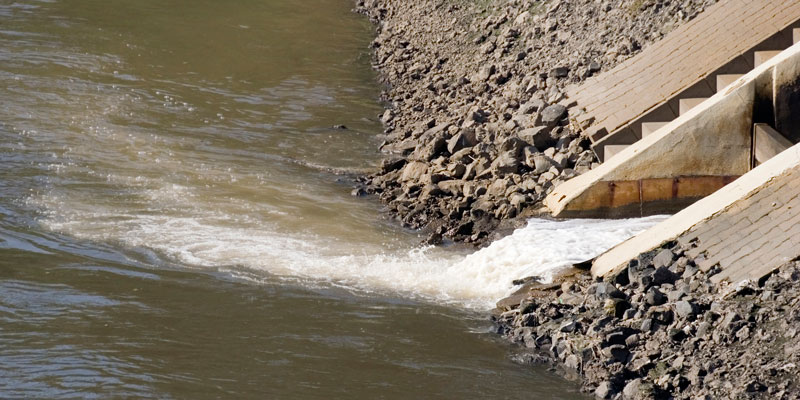Towards a Regional Monitoring Framework for Cumulative Impacts Assessment in the Northumberland Strait
Michael van den Heuvel, Canada Research Chair in Watershed Ecological Integrity, University of Prince Edward Island (2012-2014)

Challenge
The Northumberland Strait, which separates Prince Edward Island from New Brunswick and Nova Scotia in the Southern Gulf of St. Lawrence, has seen declines in fish stocks and environmental degradation in its rivers, estuaries and the Strait itself over the past two decades. An extensive consultation with stakeholders in the region pointed to several environmental concerns that required monitoring, and revealed that the Strait’s watersheds require better management.
The Northumberland Strait Environmental Monitoring Partnership — a partnership of government, industry and non-governmental organizations — was formed in 2011 to address the need for a monitoring framework to support cumulative effects assessment in the region. The highest priority concerns for monitoring are the influx of sediments, contaminants and nutrients from land-based activities that degrade the rivers, estuaries and the coastal regions of the Strait. The priority valued ecosystem components identified were the region’s estuarine biota, particularly its submerged aquatic plants, invertebrates and fish — all of which directly or indirectly support coastal fisheries, aquaculture, tourism and recreation in the Strait.
This project seeks to require not only a better understanding of the links between human activities and the environmental changes that have been observed in the Northumberland Strait.
Project
To assess and manage cumulative effects of multiple stressors in the Northumberland Strait, researchers are developing monitoring tools as well as establishing relationships between stressors and their impacts on key biota in the region.
Research is being conducted in 20 estuaries/watersheds across the range of nutrient and sediment stressors in the Strait and is focusing on three broad areas: quantifying land-based stressors, developing monitoring tools to assess estuarine integrity, and developing predictive stressor-based models of estuarine impacts. The research will be focused on the following activities:
- Advancing methods to quantify land-based stressors, primarily the influx of nutrients and sediment into the Strait. This research is critical, as it establishes the link between estuarine biological monitoring and activities on land so watershed managers can make informed decisions.
- Developing monitoring tools to restore and maintain estuarine integrity. To facilitate a legacy of integrated monitoring, it is essential that the monitoring tools being developed be sensitive to environmental parameters in the chosen estuaries, be feasible both temporally and spatially, and be economically realistic.
- Advancing cumulative effects assessments in the Strait by developing stressor-based models of estuarine impacts. This component will integrate all components of the project by developing predictive models to support the decisions of end users.
Outputs
- Predicative models that link land-based sediments and nutrients to cumulative effects
- Stressor–response models.
- A guideline report on estuarine monitoring
- Workshops to inform watershed and community groups in the region, as they are the primary users of the biological monitoring tools
Outcomes
- Improved understanding of the links between human activities and the environmental changes that have been observed in the Northumberland Strait.
- Informed decision-making related to the implementation of a robust regional monitoring framework.
- Changes in practice resulting from the tool creation and guideline report to manage, predict and mitigate cumulative effects in the Northumberland Strait.





